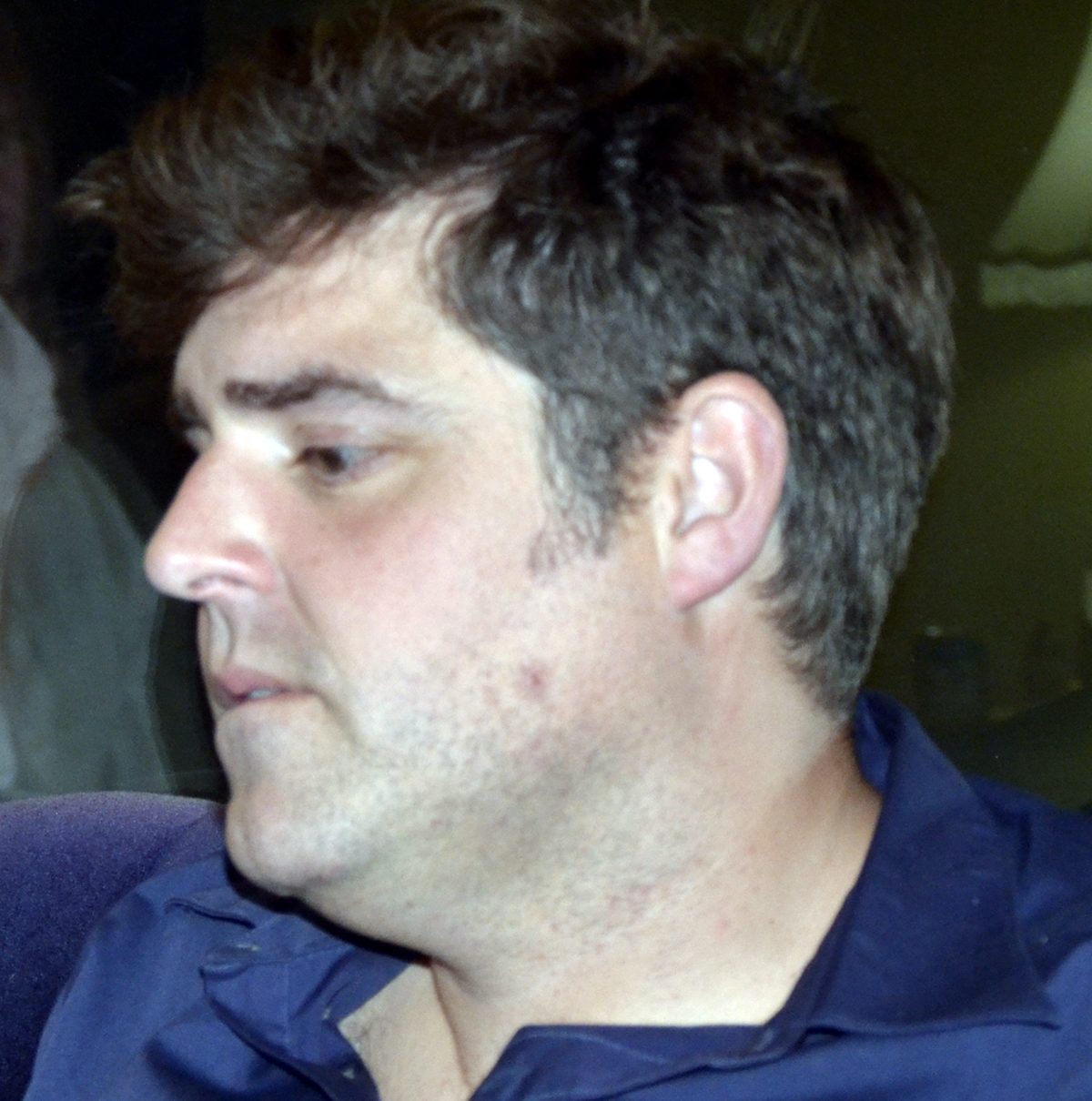
PostNorth — The Distances
“Postnorth brings together experienced poets and emerging writers,” said Graham Pearce, College of New Caledonia creative writing instructor, in his introductory remarks. He continued:
Postnorth is an attempt to hustle passion and trouble onto the page. . . . Postnorth is a moment where anything can happen . . . . To the writers, I say this: To share a microphone with you is a privilege. You are some of the best minds of the city and the region, and we should not take for granted the moment we share.
Pearce voiced opposition to those literary authorities who believe literature must be subordinated to collective community values as interpreted by the politically correct:
To the critics, I say this — Censors be damned: curses — you have no right to silence the conversation / kill the dangerous poems / stop me from kissing the lights of the sirens, or drinking office wine. I hereby curse you, woke versions of Big Nurse, Big Daddy, Tyrant Mother, all you love killers. And with this curse — Dear Poets, Dear Writers — you are free.”
Chris Conley read his poem of praise of Keanu Reeves and his comments during a recent appearance on The Steve Colbert Show. Reeves had been asked a non-late-show question in a late-show context: “What happens when you die?” He answered, “I know that the ones who love us will miss us.”
“He came closer to enlightenment than any other movie actor,” said Conley.
Alexa Mocilac‘s St. Valentine’s Day poem, “Relationships — What Not To Do,” dealt with not allowing your boyfriend to depend too much on you:
My hopes and dreams were crushed by all the extra responsibilities and sacrifices I had taken on for the relationship.
Do not take on the role of a personal chef for your partner . . . . It is beyond tiring. . . .
Do not allow yourself to become your mother, or any mother. You are in a relationship. You are not an adoptive mother. I would clean the house every week. I’d do his laundry. I’d do his laundry and put it away . . . .”
You can avoid all this by looking the other way when they buy take-out, forcing them to take on some responsibilities, allowing them to make mistakes and giving them lots of notice and time due to tasks. In the end, you will only be a part-time adoptive mother.
I am not telling you this to scare you away from ever committing to a relationship: I simply hope you can avoid having your partner depend on you for everything.
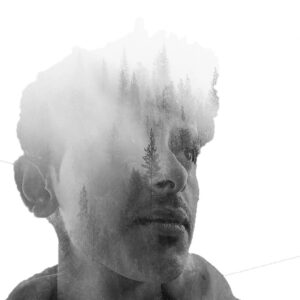 Anubhav Sharma read a poem, “Inanimate Whispers.” The first part goes as follows:
Anubhav Sharma read a poem, “Inanimate Whispers.” The first part goes as follows:
He
Whispers, into my ear
“Hush, don’t you move now,
I’ve got you, and a promise
is a promise, I won’t let go.
If you don’t trust me,
that is totally fine,
And I get it. Why?
Because trust is as subjective
As an emotion can be.
But if you don’t trust me,
yet you still miss me,
Just think about a decent-sized house,
with not a lot of rooms,
with a roof brown,
and a garden, and imagine
Me and you, living in the middle
of a small town.
Lindsy Froese‘s poem derived from her experiences working as an aesthetician. She introduced the poem by saying, “Aestheticians are taught to provide a safe, non-judgmental atmosphere,” and went on to show how this is done. As usual in the case of these reports, I’m hoping to acquire a full text soon. This is the case with some other poets on the Postnorth roster.
Gabriel Jonuk read two short poems about the challenges of the quotidian. From the first poem:
I wake up at 9:00 sharp. I sling my book bag over my shoulder. I drive to work. I’m late.
I check my messages . . . .
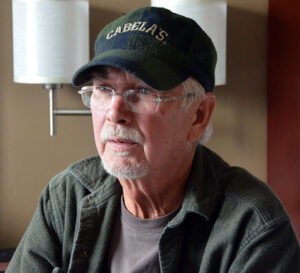 Barry McKinnon introduced his reading of “The Field” by talking about the problems of writing poems from long-term memory: “To me it’s become memory, as a kid, before you had the capacity to put experience into words . . . . You have distance from this past, and distance also from the future. . . . You don’t have the vocabulary as a kid to describe your impressions. I wanted to go back and see if I could say what I experienced then.”
Barry McKinnon introduced his reading of “The Field” by talking about the problems of writing poems from long-term memory: “To me it’s become memory, as a kid, before you had the capacity to put experience into words . . . . You have distance from this past, and distance also from the future. . . . You don’t have the vocabulary as a kid to describe your impressions. I wanted to go back and see if I could say what I experienced then.”
Then he read:
What else is time but the simultaneous
curse blessing ending, yet leaves us empty space to
exist?
– it was refracted light on tree and stone I saw the force of wordlessness..
. . . . .
. . . the earth as measureless
but for what it cld be called and become in the moving form it took
. . . . .
in that naked field
in its briefness
my displacement revealed —
I was ditched and separate, diffident . . . .
the radio-clock woke me to a paper route
endless streets – & winter . . . .
bow tied & tap dancing (a recital on the oiled stage forgetting
my relief was dirt / sage & meadow lark —
the radio . . . .
what is memory in this older self remembering in
its clarity for what purpose?
McKinnon also recalled other jobs (the reference to “hod carrier” below is to delivering manure from the family farm into Calgary) and to other experiences as a young boy:
I was a hod carrier, a paper boy selling Christmas cards in July . . . .
. . . .the family ledger of all
we did defined us in the backroads we had to take through the impending
field
McKinnon concluded, “Poetry comes to you as what you do.”
McKinnon said he also writes satire. Noting many of his students hated poetry, he read (to much laughter) a mock essay by a student in response to an assignment to write a poetic interpretation of Robert Frost’s 1922 poem, “Stopping by Woods on a Snowy Evening”:
Whose woods these are I think I know.
His house is in the village though;
He will not see me stopping here
To watch his woods fill up with snow.
My little horse must think it’s queer
To stop without a farmhouse near
Between the woods and frozen lake
The darkest evening of the year . . . .
In his interpretation of the poem, the student takes words too literally and draws on current identity politics movements in the way he reads “queer.” He calls it “hegemonic poetry” and writes:
My little horse must think it’s queer
To stop without a gay bar near.
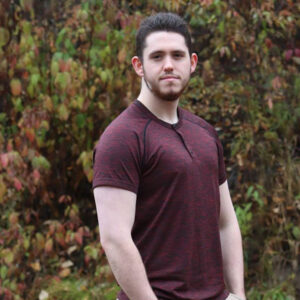 Zack Bussieres read “Millennial Blues: Biological Parents—Who Needs Them?” He goes beyond the millennial preoccupation with “me, myself and I,” and says of his parents, “Thank you for the sacrifices you made for me. I didn’t need to be directly related by blood.”
Zack Bussieres read “Millennial Blues: Biological Parents—Who Needs Them?” He goes beyond the millennial preoccupation with “me, myself and I,” and says of his parents, “Thank you for the sacrifices you made for me. I didn’t need to be directly related by blood.”
Bussieres also read “Hunt Or Be Hunted” and “Ultra Present.” In the latter he says, “No need to resent the past. Relent your control of what can’t be controlled.”
Sydney Alexander‘s poetry centred on work in a funeral home:
An angel of death is coming in an unmarked car.
It is not my loss, but I feel as if it is.
She emphasizes the importance of showing empathy for family members who are absorbing the impact of a loss. In her poem, “Black Dress,” she is especially concerned for a family who lost a young man full of promise:
I’m wearing the most uncomfortable black dress
I chose it on purpose
He was a twenty-year-old man.
Jonathon Penny assumed the tone of Basil Rathbone for his first poem:
I seek no classy gravesite
There’s the promise of God.
Penny also read “A Year Without You”:
They had me
They nearly had me
That day.
In addition, he read “Envy Once Holy” and a protest poem about the treatment of migrants along the U.S.’s southern border.
Damon Robinson said, “I’m in love with poetry.” One poem was “You didn’t deserve what you got” about “A girl who believed in the goodness of just being.”
Robinson added, “Poetry is confession.” In his poem, “Duplicity,” he said,
I grew up understanding hardship.
There were times when I walked out on myself.
I don’t really think what I’ll be in five years.
Maybe the impossible
Isn’t so impossible.
The first poem read by Dennis Schreiner was “Straight out of the Blue,” a poem about a relationship with a woman from a creative writing class. Later, as their relationship seems to develop, they are at a jewelry shop. He thinks to ask her, “What would you think if we got married?”:
I lost my nerve and never got it back. But I will always believe in happy endings.
Dawson Creek poet Tanya Clary read “Amphibians.” She describes her fascination with tadpoles, grown frogs and salamanders from her earliest memories as a young girl.
Frontage road
Sluggish freshet
Frogs and frogs to be
. . .
One muddy back green creek
All dirty ponds.
Part III of the poem describes the reveries of “six-year-old me playing outside:”
I was the kind of child who could be trusted without supervision.
I most loved the little tadpoles when I brought one home.
I thought many amphibians loved me.
Part IV was titled “Fight, Flight, Friend.” Part V centres on the image that “all the tadpoles were already in me/ Where do our tadpoles begin?” Part VI describes “ugly antifreeze that felled frogs.” Part VII is about “what I learned when the world was still magical:”
When did I start to learn to negotiate about language?
I still sleep with frogs under my pillow.
Graham Pearce read next, saying the “The Distances” in the title of the poetry reading referred to “distances between people and distances between lovers.” He focused on the beauty, joy and messiness of love-making:
Let me drive into your red lights.
This is the language of colours.
Frosted tulips. . . .
I’m through with my generation,
But my generation isn’t through with me.
A car in the snow
A blue Compass
A case of cold chablis.
Magic is in the power exchange, he says:
I’ve dreamed of your inner thighs.
you bloom and bloom like orchids.
In “Acapulco Now” (a romantic poem about a proposal in a hotel by the Pacific):
I whistle “Moon River” while you undress . . . .
The big brass bed.
In his final poem of the evening:
Everybody knows the hole in your desire is new and deep. . . .
Camus says you have to live. . . .
Fine, dirty kisses . . . .
You appear in my sheets
Floating in the sheets
Words cancel reality.
Pearce told listeners, “Words cancel reality. Words are local currency. Your currency is poems.”
Alex Lasnier read:
What creativity comes from the mundane?
Numbers won’t save you this time.
Anticipation is my fuel.”
Raegan Cote read the poem printed on the back of the Postnorth reading agenda. The poem “I’ll Kiss Your Pennies. I’ll Kiss Your Gin,” is representative of other poems I have heard from her:
I stare where shoulder meets clavicle,
My eyes have separate conversation with your posture, and surely
You know I’ve been hared since you walked in,
Your green shirt reminds me of the taste of gin, Empress Gin, lavender purple
The colour I’d turn the fatty vein on your neck that lets me know you are alive
Something in me has been revived, or born new, I feel like a spring chicken
Cock crowing in the morning, you are with me until I wake
Break me, I dare you. It isn’t in you, but I know I am
I
Can
See
it
. . .
You, you win though I don’t go down easy
But I’d go down on you, easy.
Cote’s poem, “The Shining,” is about the complications of love. “I’d love to bury hate. I look out the window. Big flakes come down.”
Another of her poems is “All We Do Is Break Up”: “I play the blues on an old record player.” And in her last poem of the night she describes “floating high on femininity”:
I’m a time bomb about the explode
Yet we continue for nothing.
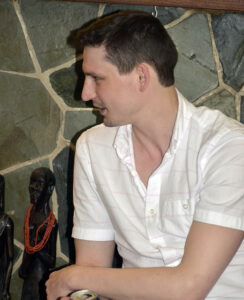 Matt Partyka was the last to read. As Pearce announced in his introduction to the reading, today happened to be Matt’s thirty-second birthday.
Matt Partyka was the last to read. As Pearce announced in his introduction to the reading, today happened to be Matt’s thirty-second birthday.
“Free Spirit” was about buying a used bike. A subsequent poem describes how he took his girlfriend out on a hot-air balloon ride near Palm Springs. Then he read a transit poem that focused on the No. 15 bus that runs between UNBC and downtown Prince George. Partyka also read a poem about competitive swimming and the need to get up at 5 a.m. and jump in a cold pool.
Partyka said he had a distance poem in progress, but it’s not quite finished.
“The Long Dash” is an unfinished poem about the distance between lovers and between now and the past. The poem, he said, fits into the Postnorth theme of “distance:”
the long dash
begins as a cure
to the last great migration
as a cure to wander lust
. . .
oh, how the new West was lost
oh, how the distances
did not
fall into themselves
as promised
or dreamt of
Partyka explores the impact of current ideologies on love-making:
what will it take
to make you show
some god damn initiative?
in the ways of love
there’s direct
and digressive
wouldn’t it be nice to fuck again
without all the posters
and politics?
it used to be you got horny
and did something about it
now it’s all negotiation
and power dynamics.
even “yes is not yes”
Later in the poem:
without direction
without urgency
with an eco clean conscience
you say you want social justice
and equality
but I say what do those mean
I want truth through untruth
I want poetry.
Partyka read “Lazienki,” about a statue of Chopin in a Warsaw park:
a gaunt willow
turned hand
reaches out of the grave
. . .
in the sun
the notes hold for a shimmering moment of clarity
immortal
Partyka offered the concluding remarks for the three-hour event: “Thank you to the readers, to the audience, to the hostages, to the enemies and especially to the staff who have worked so hard for us tonight . . . . In our current moment of political correctness and polarization, I feel privileged and honoured to read with such a strange and excellent group of writers. It’s encouraging to see so many people venture out to as ‘unsafe’ a space as a Postnorth poetry reading and to turn off the internal censors.
One of the questions I have been exploring in my classes this semester is whether art is above politics. If you’re one of my students, you’re probably sick of me talking about this, so I will keep it brief.
I think we are all better tonight for having witnessed such a diverse set of ideas about and approaches to the human condition, with all of its beauty and horror. I hope that this is the decade that we see the resurgence of the individual who dreams, who risks, who loves and who writes, and I hope you are an intricate part of this resurgence.”
Afterwards participants and audience members stayed for more than an hour for beer and conversation, and for opportunities to re-establish links with old friends.
